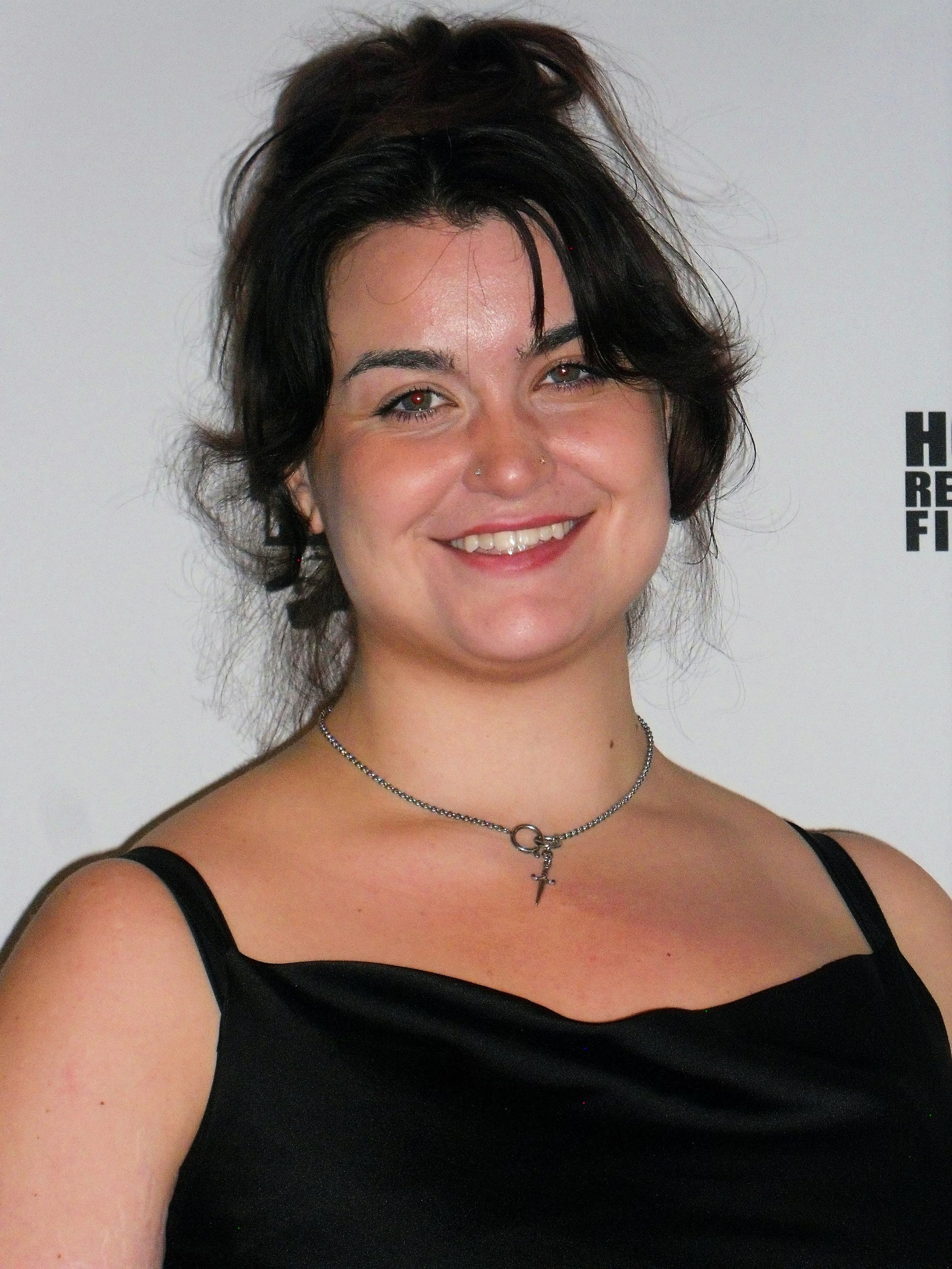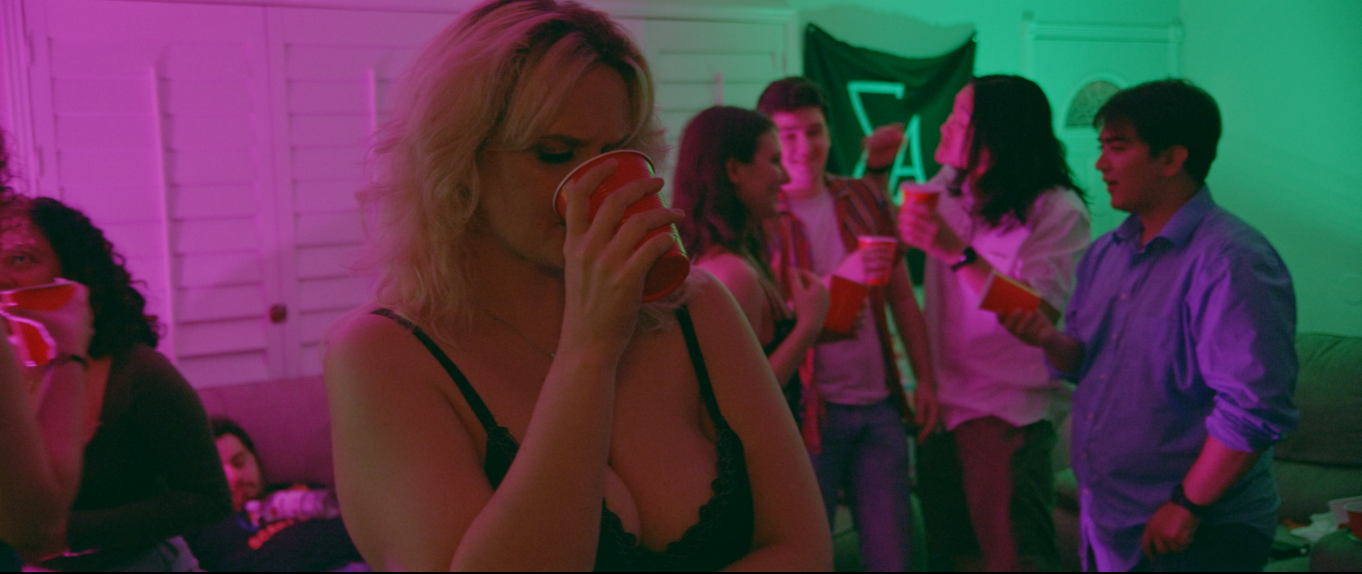Confessions of a First-Time Filmmaker: Veronica Valenti
Welcome Veronica, we are very excited to have you today with us to discuss about your work.
Who is Veronica Valenti and how did the passion for creating begin?
I think i had a hard time finding myself in the beginning, and I consider myself a late bloomer in many ways. I loved creating and collaborating with others, but I didn’t start seriously studying film or viewing it as a passion until I was 24 or 25 years old. I graduated from my university last year with a degree in Theatre, so that’s where I’m more well-versed. However, since discovering film-making, I’ve been deeply dedicated to it, and that’s definitely where I see my future.
Can you tell us a bit about your previous work?
Since this is the first original short I’ve written and directed, my past work is mostly limited to my college projects and another short I directed called The Deal, written by Torey Gerace. That short was very minimalist but still comedic. I wanted to explore the humor in the subtleties of homo-eroticism between two tough-looking guys while disguising the punchline about the true nature of their deal. While I experimented with cinematography in college scene work, The Deal was my first opportunity to work with a crew and put my directing skills to the test. That experience helped me push the envelope and explore a more intense narrative with Confessions.
Confessions dives into the mind of a serial killer. What inspired this dark and intimate psychological exploration?
Ironically, this project started as a joke. I joined a film club, and as an icebreaker, we created a fake movie poster. Our idea became the foundation for Confessions. After finishing the poster, I realized the premise had real potential and could be an incredible way to explore the fundamentals of film-making. One of my biggest inspirations for the short was Basic Instinct, particularly the interrogation scene between the Prisoner and the Detective. I wanted their interaction to feel tangible and uncomfortable, almost seductive. The femme fatale archetype has been prevalent since early Hollywood cinema, presenting an alluring yet dangerously secretive character. Using film noir and neo-noir elements gave us room to play stylistically, and I’m very grateful for that.
CONVERSATION ABOUT: '‘Confessions''
As a first-time filmmaker, what was the most challenging aspect of translating this intense narrative from idea to screen?
Honestly, one of the hardest parts was the planning. We did so much planning. I thought meticulously about certain shots, but in execution, some weren’t as effective as I had envisioned. What do you do when a shot is crucial for the story but just doesn’t work? That’s where our cinematographer, Jake Ayala, really helped. As a first-time filmmaker, I’m still learning, and I’m incredibly grateful for the people who supported me. Another challenge was doing justice to the material, particularly the theme of domestic violence. Approximately 1 in 4 women and 1 in 9 men experience domestic violence, and since this material is so heavy and unfortunately prevalent, I wanted to contribute meaningfully to local resources like Laura’s House and the East Los Angeles Women’s Center. I hope audiences see this as more than just a film—I don’t want the message to stop at just the short.
Did you have a specific vision for cinematography? How did lighting, framing, and color contribute to the film’s mood? How did sound and music enhance the tension?
Visually, I was focused on editing and cinematography. I wanted the interrogation scenes to remain still, using tripods and minimal movement, while the memory sequences were handheld to evoke a sense of chaos. Her life has been turbulent, but now she’s trapped in the stillness of prison. I used heavy shadows for the interrogation and bright, vivid lighting for the memories to emphasize the contrast. I was also very focused on match cuts, which helped showcase the balance—or imbalance—between characters. Looking back, I think my biggest takeaway is the role of music. I was so focused on visuals that I didn’t prioritize the score until it was too late. Our composer, Cara Sanchez, was incredibly talented, and I feel like I underutilized her. The tension carried itself well, but I sometimes wonder if adding more music would have enhanced the impact. Confessions: The Musical coming soon.
Did you have any “happy accidents” during filming—moments where something unplanned made the scene even better?
There were, of course, some hiccups, like any filming process. The closest thing to a happy accident was when we realized we didn’t have any glue to hold the fake glass shard in Julian’s (Josh Merritt) neck for the stabbing scene. So we just had her hold onto it, and make up for it by using movement with the camera. I feel like that made it better and helped the idea that movement means chaos within this world. We also couldn’t practice the gunshot on Taylor (The Prisoner) because of cleanup concerns, so we had to use a body double for rehearsals. That meant our Intimacy Coordinator, Rachel Diaz, and I ended up covered in fake blood before shooting even started. Thankfully, we managed to keep the camera blood-free, and that’s what really matters, right?
What reactions do you hope to elicit from audiences watching your project?
I really hope the gunshot scene lands with the audience. We put so much effort into making it work, and we only had one take to get it right, so the payoff was incredibly rewarding. Beyond that, I want viewers to leave with a different perspective on the protagonist. Josh is initially presented as the victim, but by the end, you realize she is the real victim. She’s snarky, she’s a fighter, but she’s also someone who was coerced into something she wasn’t truly okay with. She’s not perfect, but no victim ever is.
If you had to cast a famous actor to play the serial killer in a big-budget remake, who would you pick and why?
If I could cast any famous actor as the Prisoner, it would probably be Natasha Lyonne. She’s incredibly talented, and I love the cadence of her voice, which would be perfect for the voice-over portions. Given her experience in Orange Is the New Black, she already has a strong foundation for playing a prisoner. If Confessions were made into a feature-length film, I imagine it would be similar to Destroyer, but with Natasha Lyonne leading.
Can you tease any upcoming projects or themes you're excited to explore in future works?
I’m currently working on another short film, Susan’s Serenity Spa, which explores themes of perfection within beauty and wellness culture. We start shooting in April, so I’m deep into planning mode. I’m also involved with TAG Movie Productions, which is producing another short, Rock of the Dead, written by Diego Ramos. It’s a dark comedy set to release this October—perfect for Halloween. Beyond that, I have a few other short film ideas in mind, but once those are completed, my goal is to transition into feature film-making. I’m definitely not stopping anytime soon! Thank you so much for letting me talk about Confessions! It was an incredibly rewarding experience from conception to execution, and I’m so happy with how it turned out
This marks the conclusion of the interview featuring our esteemed artist, Veronica Valenti. Our community is growing steadily, with a continuous influx of skilled filmmakers and screenwriters joining us. Explore our other interviews, and consider scheduling one for yourself to showcase your creative endeavors.







